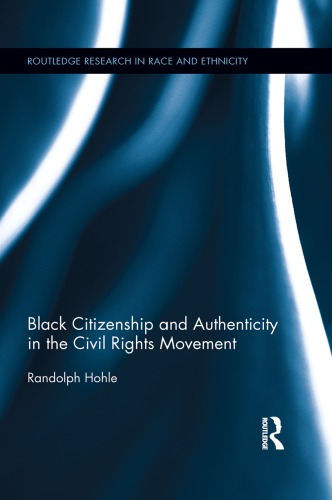

Most ebook files are in PDF format, so you can easily read them using various software such as Foxit Reader or directly on the Google Chrome browser.
Some ebook files are released by publishers in other formats such as .awz, .mobi, .epub, .fb2, etc. You may need to install specific software to read these formats on mobile/PC, such as Calibre.
Please read the tutorial at this link: https://ebookbell.com/faq
We offer FREE conversion to the popular formats you request; however, this may take some time. Therefore, right after payment, please email us, and we will try to provide the service as quickly as possible.
For some exceptional file formats or broken links (if any), please refrain from opening any disputes. Instead, email us first, and we will try to assist within a maximum of 6 hours.
EbookBell Team

4.7
26 reviewsThis book explains the emergence of two competing forms of black political representation that transformed the objectives and meanings of local action, created boundaries between national and local struggles for racial equality, and prompted a white response to the civil rights movement that set the stage for the neoliberal turn in US policy. Randolph Hohle questions some of the most basic assumptions about the civil rights movement, including the importance of non-violence, and the movement’s legacy on contemporary black politics. Non-violence was the effect of the movement’s emphasis on racially non-threatening good black citizens that, when contrasted to bad white responses of southern whites, severed the relationship between whiteness and good citizenship. Although the civil rights movement secured new legislative gains and influenced all subsequent social movements, pressure to be good black citizens and the subsequent marginalization of black authenticity have internally polarized and paralyzed contemporary black struggles. This book is the first systematic analysis of the civil rights movement that considers the importance of authenticity, the body, and ethics in political struggles. It bridges the gap between the study of race, politics, and social movement studies.